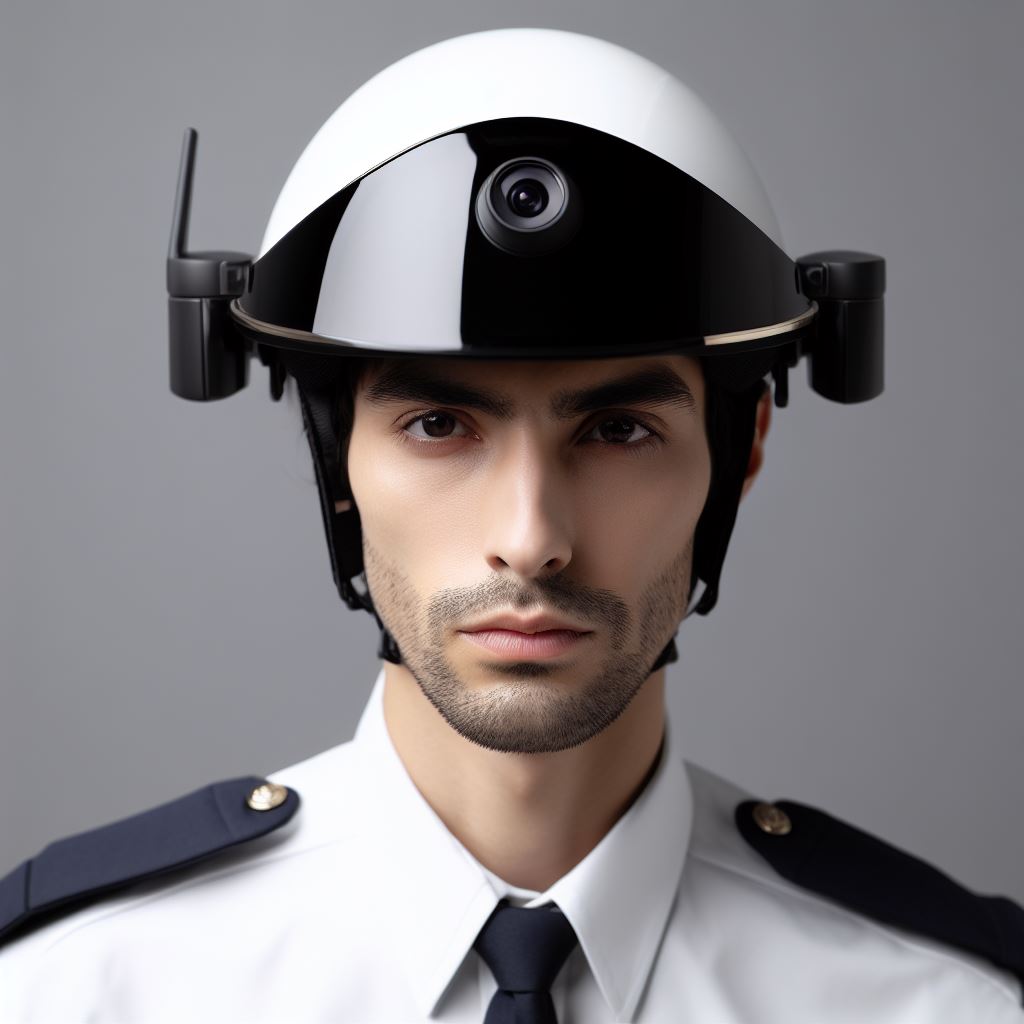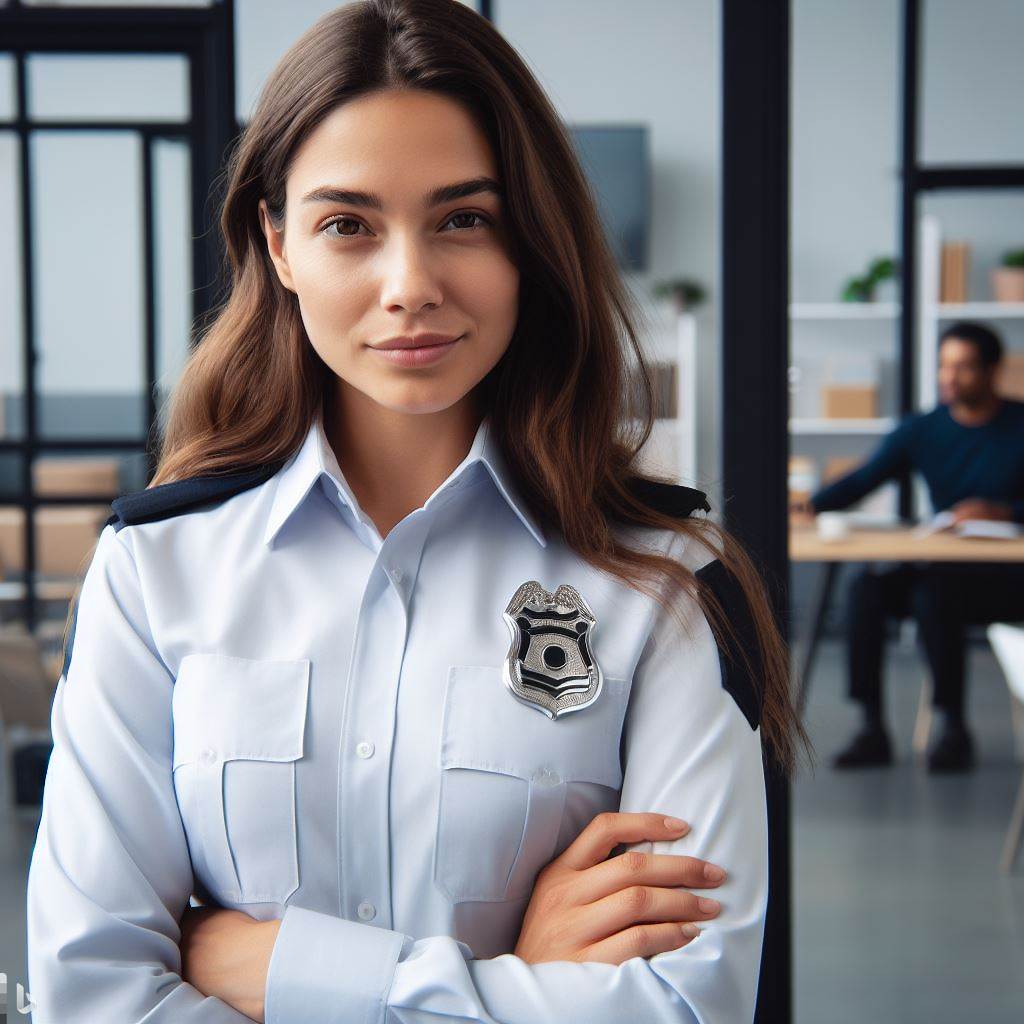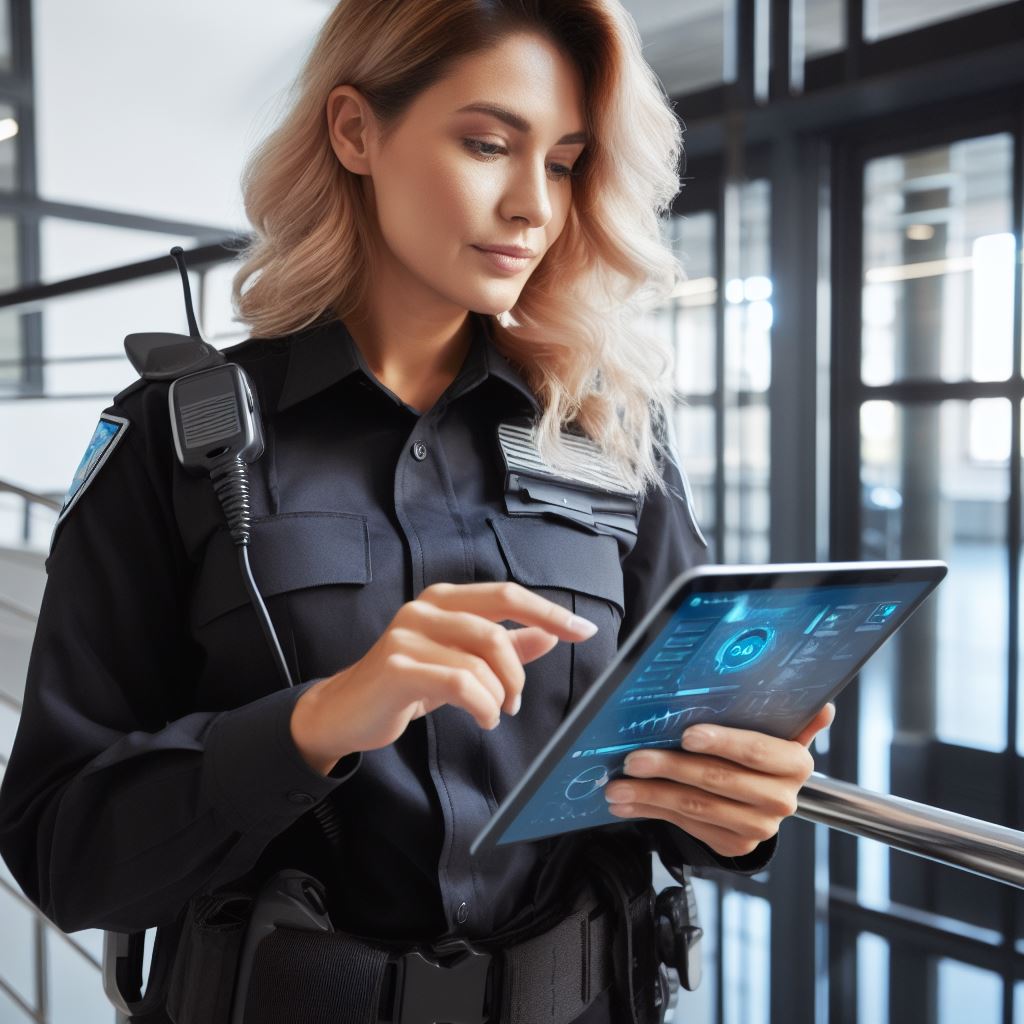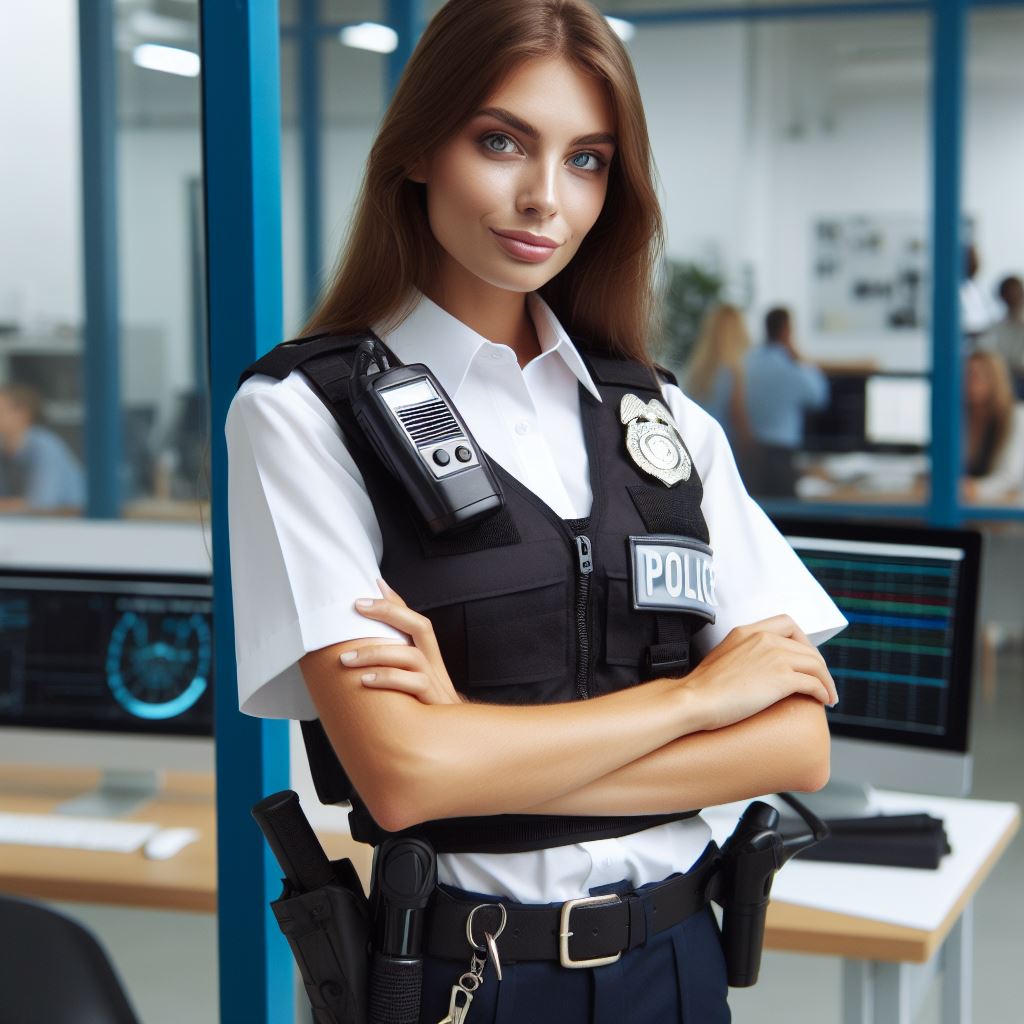Introduction
Importance of Security Guards
The critical role of security guards cannot be overstated; they are the frontline defenders across diverse sectors, ensuring the safety and security of people, assets, and premises.
In an ever-evolving world, the vigilance and dedication of security guards serve as a stabilizing force, contributing significantly to the overall well-being of communities and organizations.
Roles and Specializations
Delve into the expansive tapestry of security guard roles, each thread weaving a unique narrative.
From the watchful eyes of retail security to the meticulous planning of event management, the field encompasses diverse specializations.
These roles demand a spectrum of skills, from conflict resolution to risk management, highlighting the dynamic nature of the security profession.
Purpose of the Blog Post
This blog post serves as an enlightening journey through the myriad roles and specializations within the realm of security guards.
It aims to provide both aspiring security professionals and the curious reader with a comprehensive understanding of the multifaceted nature of security occupations. |
By unraveling the layers of these roles, we hope to foster appreciation for the diverse skill sets and contributions of security guards in safeguarding our communities and assets.
Read: The Journey to Becoming a U.S. Firefighter: Steps Explained
Common Security Guard Roles
Unarmed Security Guards
- Unarmed security guards have specific responsibilities and duties.
- They primarily focus on prevention and deterrence of security threats.
- Examples of industries employing unarmed security guards include retail, residential, and event management.
Armed Security Guards
- Armed security guards have additional responsibilities and duties compared to unarmed guards.
- They require different licensing and training requirements to carry firearms.
- Examples of industries hiring armed security guards include banks, government facilities, and high-value transportation.
Read: Diversity in U.S. Fire Departments: Current Trends
Specialized Security Guard Roles
Mobile Patrol Guards
Responsibilities and duties
- Conduct regular patrols to ensure the security of designated areas.
- Monitor surveillance systems and report any suspicious activities.
- Respond to alarms and emergencies, providing necessary assistance.
- Secure premises by controlling access and ensuring all doors and windows are locked.
Advantages of mobile patrols
- High visibility deters potential criminals and reduces crime rates.
- Quick response to incidents due to the mobile nature of the guards.
- Flexibility in covering large areas or multiple locations.
- Cost-effective solution compared to having fixed security personnel stationed on site.
Industries where mobile patrol guards are commonly utilized
- Residential communities and gated neighborhoods.
- Construction sites and industrial facilities.
- Shopping malls and retail stores.
- Office complexes and business parks.
Event Security Guards
Responsibilities and duties specific to event security
- Ensure the safety and security of attendees, staff, and performers during events.
- Manage crowd control to prevent disturbances and maintain order.
- Implement access control measures to prevent unauthorized entry.
- Handle any security-related incidents or emergencies that may arise.
Crowd management and access control
- Direct and guide attendees to designated areas and exits.
- Check tickets or credentials to ensure only authorized individuals enter the event.
- Maintain a visible presence to deter potential threats and misconduct.
- Coordinate with other event staff and security personnel for seamless operations.
Qualities and skills required for event security guards
- Excellent communication and interpersonal skills to interact with diverse crowds.
- Ability to remain calm and composed in high-pressure situations.
- Quick decision-making and problem-solving abilities.
- Physical fitness and the ability to handle physical confrontations if necessary.
Corporate Security Guards
Responsibilities and duties in corporate settings
- Protect the company’s assets, including property, equipment, and intellectual property.
- Implement security measures to prevent theft, vandalism, and unauthorized access.
- Conduct regular security checks and inspections to identify potential vulnerabilities.
- Monitor surveillance systems and alarm systems to detect and respond to security breaches.
Protection of assets, employees, and information
- Ensure the safety and well-being of employees, visitors, and clients.
- Enforce company policies and regulations to maintain a secure work environment.
- Safeguard confidential information and sensitive data from unauthorized disclosure or misuse.
- Collaborate with law enforcement agencies when required to report incidents or assist in investigations.
Additional training and skills for corporate security guards
- Knowledge of access control systems, surveillance technology, and alarm systems.
- Understanding of emergency response procedures and evacuation protocols.
- Customer service skills to handle interactions with employees and visitors professionally.
- Strong observation and reporting skills to document security incidents and prepare accurate reports.
Private Security Guards
Duties and responsibilities of private security guards
- Provide protection and security for individuals, residences, or specific properties.
- Patrol assigned areas to deter unauthorized activities and respond to security threats.
- Monitor security cameras and alarm systems to detect and prevent breaches.
- Escort clients or valuable assets to ensure their safety and prevent theft or harm.
Examples of roles within private security
- Bodyguards or personal security officers for high-profile individuals.
- Residential security guards to protect gated communities or private estates.
- Retail security officers to prevent shoplifting and maintain a safe shopping environment.
- Bank security guards responsible for safeguarding financial institutions and preventing robberies.
Industries that often hire private security guards
- Celebrities, politicians, and public figures requiring personal security.
- Residential communities and homeowners associations seeking security services.
- Retail businesses, including stores and shopping centers.
- Financial institutions such as banks and credit unions.
Read: The Physical Demands: Firefighter Fitness Standards
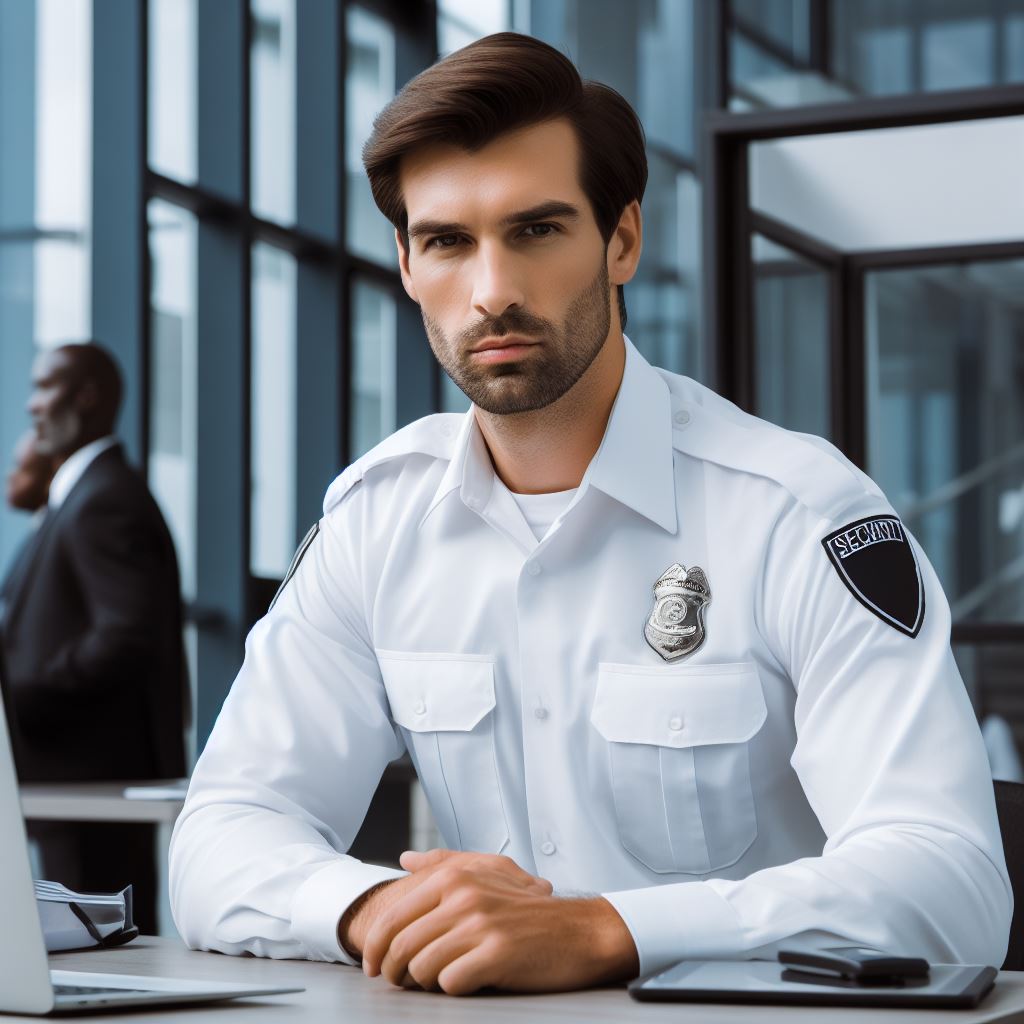
Specializations within Security Guard Roles
As the field of security continues to evolve, there is an increasing demand for specialized security guard roles.
Different sectors and individuals have unique security needs that require specific skill sets and qualifications.
In this section, we will explore three specializations within security guard roles: Armed Personal Protection (Bodyguards), CCTV Monitoring and Surveillance, and K-9 Security Guards.
Armed Personal Protection (Bodyguards)
- High-level protection for individuals.
- Unique skill set and qualifications required.
- Clients who require personal protection include celebrities and high-ranking executives.
Armed Personal Protection, commonly known as bodyguards, provide high-level protection for individuals who face potential threats to their safety.
These individuals often include celebrities, politicians, high-ranking executives, and other prominent figures.
Being a bodyguard requires a unique skill set and qualifications. These professionals undergo extensive training in areas such as defensive tactics, emergency response, and firearms handling.
They must possess physical fitness, exceptional situational awareness, and the ability to make split-second decisions.
Clients who require personal protection often face specific security risks due to their public profile, wealth, or occupation.
Bodyguards provide a visible deterrent to potential threats and ensure the safety and well-being of their clients.
CCTV Monitoring and Surveillance
- Security guards play a crucial role in monitoring and managing CCTV systems.
- CCTV surveillance is important in sectors like retail, transportation, and public spaces.
- Skills required for CCTV monitoring guards include attention to detail and familiarity with technology.
In an increasingly digital world, the role of security guards in monitoring and managing CCTV systems has become vital.
CCTV surveillance enables the constant monitoring and recording of activities in various sectors such as retail, transportation, public spaces, and residential areas.
Security guards responsible for CCTV monitoring play a crucial role in maintaining the security of the premises.
They monitor live feeds, analyze suspicious activities, and respond promptly to potential threats. Additionally, they ensure the proper functioning of CCTV systems, including regular maintenance and troubleshooting.
To excel in the role of CCTV monitoring guards, individuals need a keen eye for detail, strong observation skills, and familiarity with technology.
They should be able to effectively multitask, analyze situations, and communicate information to the relevant authorities or response teams.
K-9 Security Guards
- Trained dogs are utilized by K-9 security guards in security operations.
- Specific duties involve patrolling, sniffing for illegal substances, and responding to threats.
- K-9 security guards are commonly deployed in industries such as airports, government buildings, and event venues.
K-9 security guards, also known as security dog handlers, employ specially trained dogs to enhance security operations.
These dogs undergo rigorous training to detect illegal substances, apprehend suspects, and provide physical protection when necessary.
The duties and responsibilities of K-9 security guards go beyond traditional security roles.
They provide an added layer of security by patrolling designated areas, conducting searches, and responding to potential threats.
Trained dogs have an acute sense of smell and can detect hidden or dangerous materials that may be overlooked by human security personnel.
K-9 security guards are commonly deployed in industries such as airports, government buildings, correctional facilities, and event venues.
These working dogs and their handlers work closely as a team to ensure the safety and security of the premises and the people within.
In addition, understanding the different specializations within security guard roles is crucial in meeting the diverse security needs of various sectors and individuals.
Armed Personal Protection (Bodyguards), CCTV Monitoring and Surveillance, and K-9 Security Guards offer specialized skills and services that contribute to creating a safer environment.
Read: Understanding the Roles of Firefighters in U.S. Cities
Conclusion
Roles and Specializations
As we bring this exploration to a close, it’s crucial to reflect on the diverse roles security guards play.
From the vigilant oversight of retail spaces to the intricacies of managing security at events, each role requires a unique set of skills and expertise.
This recap underscores the dynamic nature of the security profession, with each specialization contributing uniquely to the broader goal of ensuring safety and order.
Importance of Understanding Roles
Delving into the nuances of these roles is not just insightful; it’s pivotal for appreciating the multifaceted contributions that fortify the security industry.
An understanding of these diverse roles enhances our collective recognition of the crucial role security guards play in maintaining the security fabric of our communities and institutions.
Transform Your Career Today
Unlock a personalized career strategy that drives real results. Get tailored advice and a roadmap designed just for you.
Start NowEncouragement to Explore Careers
To our readers, consider this an invitation to explore the myriad career opportunities within the security industry.
Witness how your unique skills can contribute to a safer, more secure world.
The roles we’ve uncovered are not just job descriptions; they represent pathways to meaningful contributions in safeguarding assets and communities.
As you contemplate potential career avenues, embrace the dynamic nature of the security sector, recognizing that each role is a chance to make a tangible impact on the safety and well-being of others.
[E-Books for Sale]
The Big Book of 500 High-Paying Jobs in America: Unlock Your Earning Potential
$19.99 • 500 High-Paying Jobs • 330 pages
Explore 500 high-paying jobs in America and learn how to boost your career, earn more, and achieve success!
See All 500 High-Paying Jobs of this E-Book
1001 Professions Without a Degree: High-Paying American Jobs You Can Start Now
$19.99 • 1001 Professions Without a Degree • 174 pages
Discover 1001 high-paying jobs without a degree! Unlock career tips, skills, and success strategies for just $19.99!

